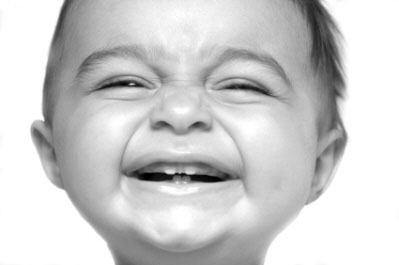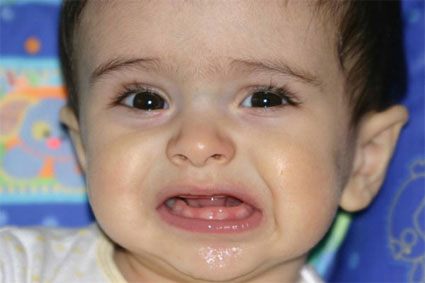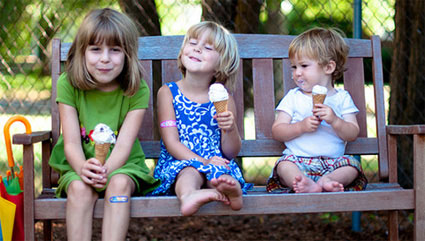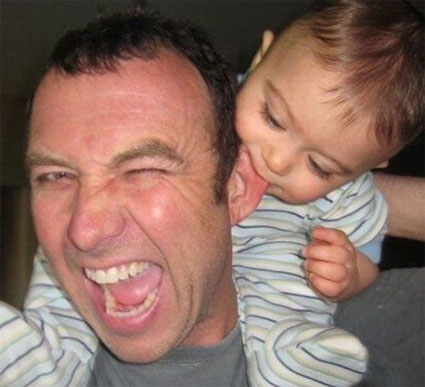There is a fixed order in which teeth appear. Your baby will begin teething roughly around six months.It is difficult to predict when you can expect your baby's first tooth emerge. Do not be surprised if your baby displays a toothless grin even at twelve months.
Teething usually commences around six months and continues until the end of the first year. However, the order in which the teeth appear remains unchanged.
In what sequence will my baby's teeth appear?
The first teeth to arrive are always the lower front teeth which are known as lower incisors. They appear anywhere between 6 to 10 months. These are followed by the upper front teeth (central incisors) which erupt between 8 to 12 months. The next to emerge is the upper side teeth (lateral incisors) which appear between 9 to 13 months. These are followed by the lower side teeth which appear between 10 to 16 months.
The upper canines appear between 16 to 22 months and lower ones erupt between 17 to 23 months. The canines are followed by first upper molars which appear between 13 to 19 months and first lower molars which appear between 14 to 18 months. Second molars are the last ones to appear. The lower ones appear between 23 to 31 months and the upper ones appear between 25 to 33 months.
What are the signs of teething in babies?
When your baby starts experiencing the
symptoms of teething, she will try to
bite, suck and chew on everything. She will mainly start chewing or sucking on the toys that are around her. You may also notice excessive drooling in her. Her gums may get swollen and start hurting because of which she may become fussier about eating. As she tries to put everything in their mouth, a lot of germs may enter their digestive system and cause diarrhoea in her. The germs entering her body through her mouth may also cause fever in her. However, diarrhoea and fever are not the signs of teething in a baby. During the initial stage of teething you will also see little teeth budding out from her gums.
What precautions should be taken when teething symptoms are noticed?
As you know that your baby will start put everything around her in her mouth to sooth her sore gums, you must keep all the things around her clean. Make sure that all the things around her are hygienic and safe. Do not give any over-the-counter teething pills to your child without consulting a paediatrician. You must also avoid giving any homeopathic gels or tablets to her in order to avoid the risk. Make sure that you clean her mouth frequently as your baby will be drooling excessively due to teething. Keeping her mouth area clean will help to prevent any kind of infection.
How to reduce the discomfort caused to babies due to teething.
You can
comfort your baby by rubbing your finger gently on her gums. But makes sure that your hands and fingers are clean when your put them in your baby’s mouth. A clean washcloth can be kept in a freezer after making it wet. You can allow your baby to chew on it when it becomes hard. You can also give her chilled carrot or cucumber to chew on after you clean and peal its skin properly. Some parents also prefer to give a chilled spoon. Teethers and teething biscuits can also be given to her. You must also consult a paediatrician before giving any such things to your baby.
There is absolutely no need to worry if the baby does not start teething even after 6 months of her age. It is completely normal. As mentioned earlier, some babies may even start teething after their first birthday. Teething schedule for every baby is different only the order in which they erupt is the same. You must consult your doctor if your baby does start teething even after completing 15 to 18 months of her age.































